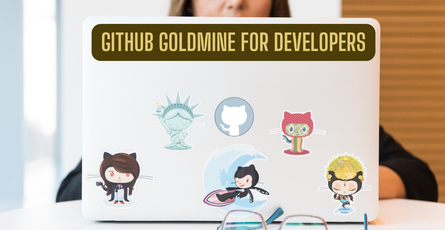Are Resume Gaps Holding You Back? Discover the Path to Success
-
 Shal V
Shal V
- Oct 5, 2023
-
 Tech Interviews
Tech Interviews
- 05 Mins read

Career gaps – those pauses in your professional journey that often raise eyebrows among recruiters and hiring managers. But should they? The truth is, career gaps should be seen as opportunities for personal and professional growth. If you've got career gaps on your resume, don't worry. You're not alone. In fact, nearly 70% of US workers have experienced employment gaps. It's all about how you present your story during interviews. In this article, we'll explore various ways to not just explain those gaps but also emphasize your skills and experiences as the true stars of your job interviews.
Affected by Layoffs
In an era marked by economic turbulence, layoffs have become more common than we'd like. Many companies, especially in the technology sector, have faced downsizing. If you were among those affected, consider explaining your situation by providing context about the layoffs. Here's how you can articulate it:
"I dedicated three years to [organization] and was dedicated to my role until it was affected during last year's layoffs. The company underwent significant organizational changes, which led to the termination of my role, along with many others on the marketing team. The news was a shock, but it turned out to be a blessing in disguise. I seized the opportunity to reassess my career goals, upskilled myself, and emerged as a more well-rounded Digital Marketing Manager. Now, I'm eager to bring these newfound skills to a new role."
Presenting it this way positions you as someone who can overcome challenges and adds value.
Became a Full-Time Parent
Parenting is a full-time job in itself, and it deserves recognition on your resume. If you've taken a career gap to nurture your child, it's a valid and commendable reason. Employers are likely to understand this, and many have experienced it themselves. Here's a way to convey your story:
"Stepping away from my career to focus on full-time parenting was a significant decision. Family is paramount to me, and it felt right at the time. While parenthood brought its challenges, I also seized the opportunity to keep my skills sharp by assisting with my friend's side hustle and volunteering on weekends. My child is now entering school, and I'm eager to rejoin the workforce with renewed enthusiasm."
Desire to Upskill
Stagnation in your professional growth can prompt you to seek career gaps. Use this time wisely to upskill and prepare for the next phase of your career. Taking proactive steps to learn new skills is an asset. Here's how you can communicate this:
"I found myself at a professional crossroads, recognizing that my data skills needed an upgrade to align with the evolving job market. I took charge and enrolled in a full-time Master's program for Data Analytics. In a year, I gained extensive knowledge. Now, I'm excited to apply these skills in my career."
By sharing your commitment to learning and growth, you demonstrate your dedication.
Show Them You Still Got It
Career gaps, as we've seen, can result from various situations. Remember, recruiters and hiring managers are human too. They understand that life happens. Instead of viewing career gaps as negatives, consider them opportunities. You're not just an employee; you're a resilient and adaptable professional. Use your career gaps as proof of your ability to tackle life's challenges head-on.
Exploring Entrepreneurship
Starting your own business, no matter how small, is a significant endeavor. If you've embarked on an entrepreneurial journey during your career gap, mention it on your resume. Entrepreneurial experience often translates into valuable skills:
"During my career gap, I ventured into entrepreneurship, establishing my own e-commerce store. This experience allowed me to develop skills in business management, marketing, and problem-solving. Now, I'm eager to return to the corporate world, armed with a fresh perspective."
Exploring entrepreneurship showcases your initiative and adaptability.
Personal Sabbatical for Renewed Focus
Sometimes, you may need a personal sabbatical to recharge and refocus. Mental well-being is a crucial aspect of professional success. If you've taken time off for self-care, don't hesitate to share it:
"After several years of dedicated work, I realized the importance of self-care and mental well-being. I took a brief sabbatical to renew my focus and return to the workforce with enhanced clarity and determination."
This communicates that you're mindful of your professional journey and prioritize self-improvement.
Pursuing Passion Projects
Career gaps can be an excellent time to follow your passions, whether it's writing a book, traveling, or working on creative projects. Share these experiences on your resume:
"During my career gap, I dedicated time to pursue my passion for writing. I authored a book on [relevant topic] and actively engaged with [relevant community]. This experience enhanced my creativity and project management skills, which I'm excited to bring to my next role."
Passion projects demonstrate your commitment to personal growth and creativity.
Volunteering for a Cause
If your career gap involved volunteering for a cause that resonated with you, highlight this experience. Volunteering can develop crucial skills such as teamwork, project management, and empathy:
"During my career gap, I felt a strong urge to give back to society. I devoted my time to volunteering at a local non-profit organization, where I led community initiatives, organized events, and developed fundraising campaigns. This experience not only enriched my life but also honed my leadership and project management skills."
Volunteering reflects your commitment to social responsibility and community engagement.
Exploring Freelance Opportunities
Freelancing during a career gap can be an excellent way to stay connected to your industry and acquire new skills. Share your freelance journey:
"During my career gap, I ventured into freelancing within my field. I undertook various projects that allowed me to work independently, manage clients, and refine my time management. These experiences broadened my professional horizons and reinforced my ability to adapt to diverse work environments."
Freelance work demonstrates your ability to stay proactive and adaptable even during a gap.
Navigating Personal Health Challenges
Life can throw health challenges our way, and sometimes, these challenges necessitate a career gap. While this may be a sensitive topic, addressing it honestly can be empowering:
"During my career gap, I encountered significant health challenges that demanded my full attention. These challenges tested my resilience and determination. I used this time to prioritize my health and well-being, and I'm grateful for the opportunity to return to the workforce with renewed strength."
Acknowledging health challenges showcases your courage and determination to overcome adversity.
Pursuing Further Education
Using a career gap to pursue higher education or specialized courses is a constructive choice. Include this in your explanation:
"During my career gap, I committed myself to further education by enrolling in relevant courses. I expanded my knowledge in [specific field], which has equipped me with fresh insights and expertise that I'm enthusiastic to apply in my next role."
Continued education signifies your commitment to staying updated and enhancing your professional skills.
Conclusion
Career gaps don't have to be stumbling blocks; they can be stepping stones. Use them as opportunities to grow, learn, and adapt. When explaining your career gaps, remember to focus on the positive experiences and skills gained during that time. Your resume isn't just a list of past jobs; it's a testament to your resilience and commitment to personal and professional development. Embrace your career gaps, and let them shine as part of your unique journey.

